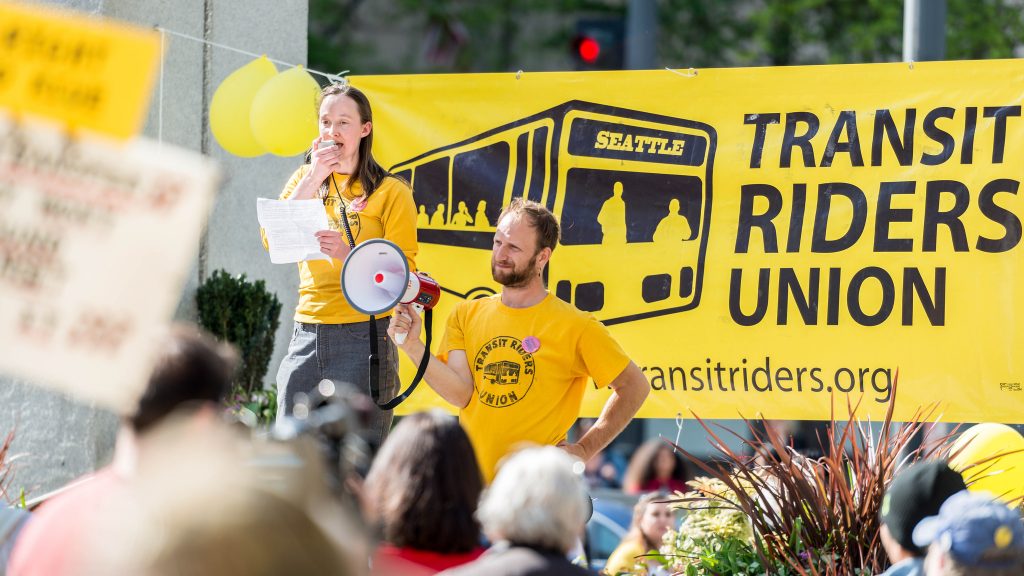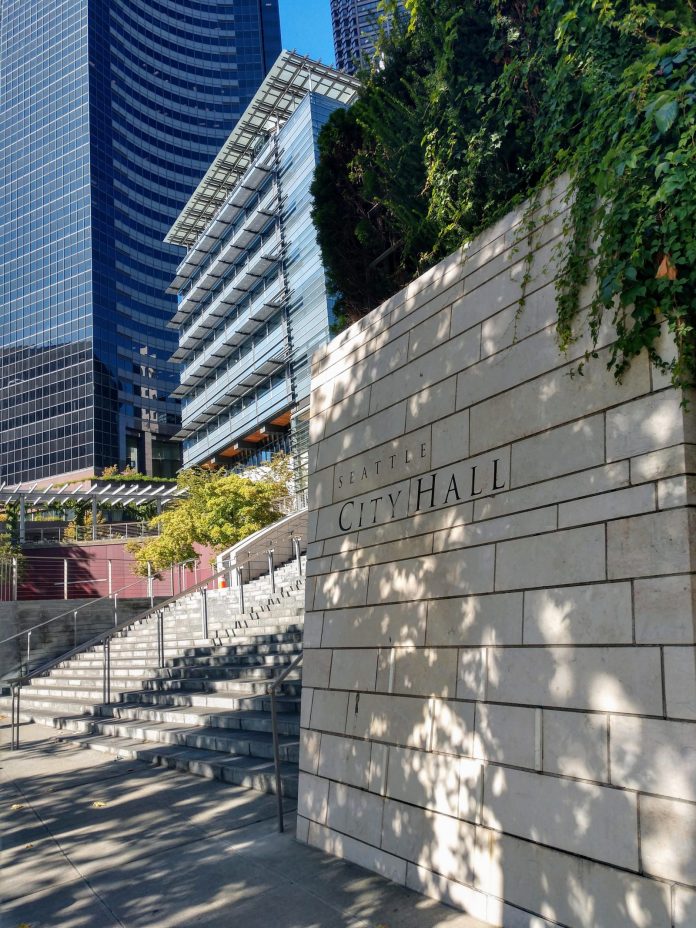On April 3rd, Washington’s Supreme Court denied a motion to hear Seattle’s income tax case enshrining a lower court ruling that struck down a 1984 state law that banned city income taxes. However, that same state Court of Appeals ruling also invalidated Seattle’s 2.25% income tax passed back in 2017 because it was not uniform and applied only to high-income earners.
While not the sweeping outcome that progressive tax reform activists desired when they drew up this legislation, the ruling does clear the way for a new progressive revenue source–and at a time when Seattle badly needs it. With the coronavirus pandemic snarling the economy to a halt and blowing budget holes left and right, State, County, and City services could be eviscerated unless lawmakers act quickly.
“We need a progressive income tax more than ever,” said Katie Wilson, general secretary of the Seattle Transit Riders Union.
John Burbank, executive director of the Economic Policy Institute–a progressive think tank instrumental in crafting the bill and its legal defense–estimates a 1% income tax could raise $400 million in Seattle.
“The City [of Seattle] and other municipalities now have a legal mandate to put in place a 1% income tax,” Burbank said.
Making the Tax Code More Progressive
Some of that revenue could returned to low-income households via rebate to make the impact more equitable. Even without a rebate, income taxes are more progressive than sales taxes since lower income households spend more of their income and high-income households save and invest more, keeping more of their paycheck immune to a sales tax hit.
“In this pandemic depression, it’s really important to sustain and actually increase public services because that’s when people need the most,” Burbank said. “If the State or the Cities were to just shrink public services because of lack of funding, then they’re sort of just doubling down on the impacts of the depression and they’ll just make it worst and last longer.”
Early indications are that Mayor Jenny Durkan and the Seattle City Council–which unanimously passed the income tax that triggered this court ruling–are interested in pursuing an income tax.
“Seattle has the authority to adopt an income tax, and I believe we can craft a proposal that can help make our tax system less regressive,” Mayor Jenny Durkan said in a statement after the state Supreme Court’s decision. “We are once again confronted with the reality that in times of crisis, those same residents that earn or have the least are the first to feel economic stings of job loss and instability.”
“We must work today to avoid this in the next crisis,” Durkan added in her statement. “As we emerge from this emergency all of us need to rebuild a city that is more just and equitable.”
Until that more equitable system is built, low-income people find themselves in the crosshairs of the unfolding pandemic crisis. Social services and equity efforts are often the first to be cut. And, in fact, Governor Jay Inslee literally cut funding to the state Office of Equity and to high-poverty schools when he slashed the state’s supplemental budget the same day the state Supreme Court issued its decision. Governor Inslee painted the cuts as necessary to meet the looming fiscal crisis.
“As we address the health crisis, we must also look ahead to ease as much fiscal pain as we can,” Governor Inslee said in a statement. “It is all but certain that we will need to make adjustments to our next budget cycle and we must get started now.”
Responding to the Pandemic Recession
The underlying problem is that Washington’s tax system–which is ranked the most regressive in the nation–is not just inequitable and hard on the poor but also brittle and highly exposed to economic shocks and recessions.
“We’re seeing right now one of the problems with having our state and local tax system so reliant on sales tax and B&O [business and operating] tax in particular, is that revenues are just plunging due to the coronavirus crisis,” Wilson said. “We don’t know what kind of recession we’re heading into, but it’s not looking great for state and local budgets.”
“We need new tools because our other more regressive tools are collapsing before our very eyes,” Burbank said.
Wilson said that in addition to filling budget holes, an income tax could also be designed to avoid low-income households.

“I do think cities should move forward with the authority that cities have in the Court of Appeals ruling,” Wilson said. “By using exemptions or tax credits, it’s probable this could be turned into what’s essentially a progressive tax. It’s not elegant, but it’s what we have.”
Building a State Income Tax Coalition
Deeper tax reform would have to come from the Washington State Legislature.
“I would hope that some kind of coalition could be built in the coming few years that would lead the State Legislature deciding to pass a state income tax kind of forcing the question so the state Supreme Court will revisit the 1930s decisions that are preventing us from taxing income in a progressive manner,” Wilson said.
Winning over enough state legislators won’t be easy. Enacting a state income tax has been a progressive dream for decades–and so far it’s always been thwarted even when Democrats have complete control of the legislature. Nonetheless, the window for progressive tax reform may finally be approaching.
“We have decades of pretty intentional miseducation of Washington voters about our tax system that is going to be difficult to overcome,” Wilson said. “But I think even in parts of the business community that might have been pretty opposed to an income tax 10 years ago, there’s a growing appreciation that that’s the direction we need to do.”
After convincing the State Legislature, it’ll then be a matter of convincing the state Supreme Court.
Daniel Beekman of the Seattle Times reported the Supreme Court’s vote was 5-3 against revisiting the restrictive 1930s precedents by hearing Seattle’s case. Given the narrow margin, a challenge originating from state legislative action might fare better.
Flipping one state Supreme Court justice could be enough, particularly if Justice Helen Whitener, who Governor Inslee just appointed to the state Supreme Court, is more of the progressive mindset and open to revisiting the unfortunate 1930s state precedents that, unlike in most other states in the union, classify income as property (hence the flat tax rate requirement capped at 1%). By the way, in replacing retiring Justice Charles Wiggins, Whitener became the first black woman to serve on Washington’s Supreme Court.
The statewide effort may taken longer than the City effort, but progressive advocates see it as a race with the effects of the encroaching recession and hope to forge ahead on all fronts.
“We need to aggressively move forward at the State and City level so that we’re not in a position of cutting public services, but in fact of enabling public services when our residents need them the most, which is right now,” Burbank said. “So I’m hoping policymakers will take that into consideration and not take a meat ax to the budget but rather be creative, thoughtful, think about equity and equity of taxation in terms of how we develop the revenues to fund public services.”
Doug Trumm is publisher of The Urbanist. An Urbanist writer since 2015, he dreams of pedestrian streets, bus lanes, and a mass-timber building spree to end our housing crisis. He graduated from the Evans School of Public Policy and Governance at the University of Washington in 2019. He lives in Seattle's Fremont neighborhood and loves to explore the city by foot and by bike.


